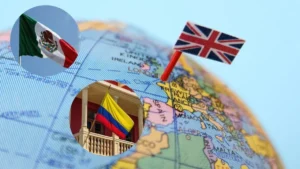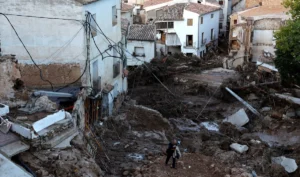The hospitality industry in Germany recorded more sales in the first half of the year than in the same period of the previous year. However, the level before the corona pandemic in 2019 was still a whopping 10.4 percent short. “The gastronomy is even worse than in 2019,” says Nathalie Rübsteck, general manager of the German Hotel and Restaurant Association (Dehoga) in Bremen.
Restaurateurs throughout Germany are also sounding the alarm for this reason. Because the cost of living has risen, households are reluctant to go out to restaurants. This has also been shown in the past summer months.
Many companies actually use the period between June and September to build up a financial cushion for the winter. In the past, roof terraces, outdoor areas and beer gardens made the tills ring in many places. But the rainy weather this year has led to a drop in sales in many places.
Higher VAT causes price explosion!
The VAT on food in the catering trade was reduced from 19 to seven percent during the corona pandemic – initially for a limited period until the end of 2022. In October 2022, the regulation was extended until the end of 2023 in view of an impending energy crisis. According to current estimates, the tax office lost more than 11 billion euros between 2020 and 2023 due to the tax reduction.
The industry association Dehoga fears thousands of closures and drastic price increases in the catering trade if the return to a higher VAT. Restaurateurs warn of a price explosion for millions of people compared to FOCUS online.
Because the costs for energy, food and staff have increased compared to the previous year. Many companies would therefore have to recalculate their prices at the turn of the year. “We currently have a price premium of 20 percent for vinegar,” says a restaurateur from Munich. “I can no longer afford the 4.50 euros for the coleslaw.” The wholesalers also pay more for olives, tomatoes and potatoes.
If a schnitzel costs 18.50 euros today, the price will rise to 20.47 euros from 2024. The price for meatballs with potato salad will increase from 12.50 euros today to around 14.50 euros.
Not an isolated case.
Most restaurateurs fear for their existence. “Should that happen, we would unfortunately have to increase the prices for food accordingly,” says Martin Schlueter from Reissdorf am Hahnentor in Cologne. The restaurateur warns: “We expressly do not want that one day a visit to the brewery will only be possible for higher earners”.
Pizza for 20 euros, doner kebab for over 7 euros and schnitzel for 25 euros?
In principle, catering establishments set their own prices. However, the companies generate a large part of their turnover through beverages. But more and more households are doing without a second beer or expensive cocktails. This also significantly reduces sales. This is also the reason why many establishments have raised the prices in the restaurant.
With a turnover of 100 euros, the average profit for companies is less than 5 euros. Previously, the value was less than 10 euros. “And that was already low,” says Rübsteck.
If the VAT rate of 19 percent were to come back, the price adjustment would be drastic.
Households would then have to pay just under 20 euros for a pizza if it is currently 16 or 17 euros. The doner kebab from the snack bar is then available for over 7 euros and the portion of fries with mayo or ketchup could rise to a dizzying 6 euros. The background is also that food prices remain at a high level and, according to estimates by retail experts, are “guaranteed” not to fall.
States are open, the federal government should bear the costs
The federal states are divided.
For example, the black-green state government in Schleswig-Holstein rejects the low tax rate. “The demand from the catering industry is understandable, but it would further aggravate the already tense budgetary situation and result in savings elsewhere,” said the Ministry of Economics and Finance. at the request of the German Press Agency
The state government in Bavaria is in favor of continuing the low tax rate on food. “Increasing VAT in the catering and hotel sector in the current times of crisis would also have very negative effects on the tourism industry,” says Finance and Homeland Minister Albert Füracker.
Mecklenburg-Western Pomerania’s Prime Minister Manuela Schwesig wants to introduce a corresponding initiative to the Bundestag for the receipt of the reduced tax rate.
Source: https://www.focus.de/finanzen/news/schockpreise-erwartet-gastro-schlaegt-alarm-darum-kostet-die-pizza-bald-20-euro_id_202151052.html


